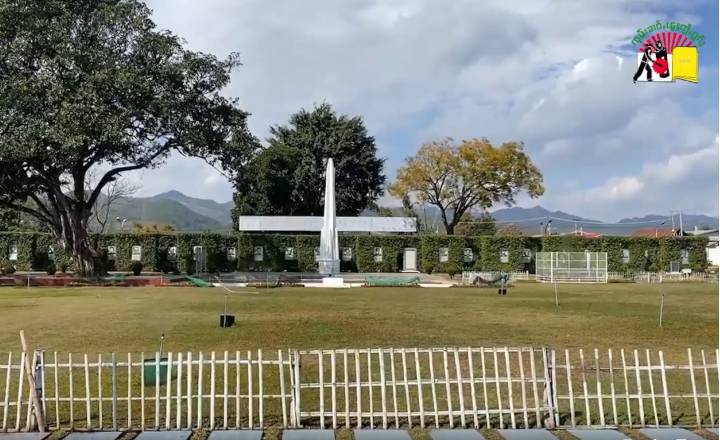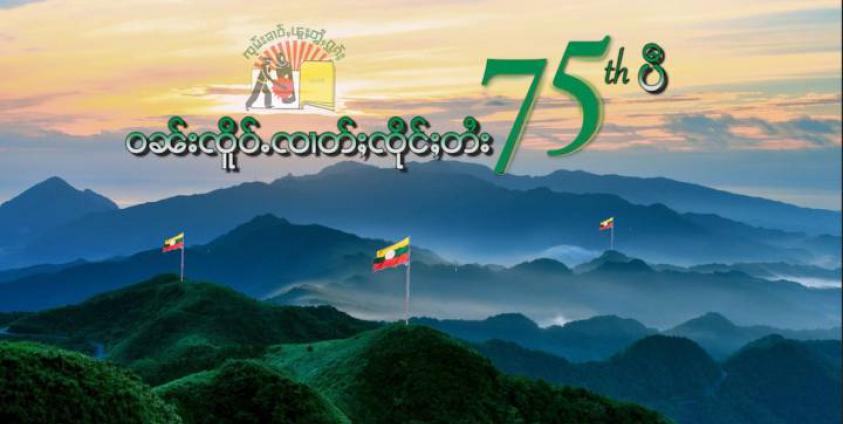Sai Wansai — On the occasion of Shan National Day diamond jubilee or 75th anniversary, the Shans are faced with increasing erosion of our national identity, which our forefathers had envisaged to become a thriving and prosperous people, together with all the other ethnic nationalities, Bamar included, within the mold of a federal democratic union.
Shan National Day was promulgated on 7 February 1947, which demonstrated the unity of Shan princes and the people’s representatives of the Federated Shan States and declared, followed by the resolutions of “Shan National Anthem”, “Shan National Flag” and the formation of “Shan State Council” on the 11 and 15 of February, 1947 respectively.
It is important to take into account that the documentation and birth of the Shan nation is signed by a Palaung Twangpeng Saohpa or Sawbwa Khun Pan Sing, who was the president of Council of Shan State Saohpa, on 11 February 1947.
The Panglong Conference that followed on 12 February 1947 produced the Panglong Agreement between the Bamar or Burmese State (Ministerial Burma) represented by Gen Aung San and the ethnic nationalities Chin, Shan and Kachin to form a union on equal basis.
It is not an exaggeration to state that without Panglong Agreement or Accord, signifying the intent and willingness of the free peoples and nations of what could be termed British Indochina, there would have not been born the Union of Burma in 1948.

Panglong Statue 2022
The Shan national identity that functioned so well until the military coup in 1962 faced erosion due to the global upsurge of ethnonationalism and Bamar ethnocentrism or Burmanization policy implementation by successive Bamar-dominated governments, even prior to the 1962 military coup.
The non-Bamar ethnic nationalities rebellion against the Bamar center, which has dominated the political decision-making power since the independence from the British in 1948, started early by the Karen even before and following the independence. But after the 1962 military coup almost all ethnic states are up in arms against the Bamar power center, mainly due to the constitutional crisis, which U Chan Htun, constitutional adviser of Prime Minister U Nu, admitted, “Our country, though in theory federal, is in practice unitary.”
In Shan State the Shan and the Kachin rebelled against government shortly before the 1962 military coup and other ethnic groups like Palaung, Pa-O and all follow suit. After the Communist Party of Burma disintegrated in 1989, followed by the ceasefire agreement with the Bamar military government the Wa, Kokang and Mongla became ethnic armed organizations (EAOs), with the rights to govern their own territories.
At present, the Wa or United Wa State Army (UWSA) has expanded its territories to southern Shan State along the Thai border with massive population transfer permitted by the then military government in the 90s, at the expense of the original indigenous local population. The Palaung or Ta’ang National Liberation Army (TNLA) including the Pao-O or Pa-O National Liberation Organization (PNLO) are also claiming territories where the population are ethnically mixed.
This kind of territorial claims and carving out their own ethnic states from the original one are bound to create unending inter-ethnic conflict, as the ethnic groups don’t live in a neatly demarcated areas but rather in a multi-ethnic state with largely overlapping habitation pattern.
Clearly, the need to find a common national identity within Shan State as Shan State citizens will have to be worked out, if this ongoing inter-ethnic conflict is to end. In this sense, all stakeholders will have to sit at the table to find an all acceptable solution to this identity politics.
The way to resolve this is to agree on an environment of multi-cultural citizenship, equality and partnership that will be crucial to sustain peace. In other words, a right mixture of “civic nationalism” and “ethnic nationalism” to suit the Shan State political atmosphere might be the way out.
For comprehensive discussion on this theme please read, “Resolving ethnic conflict – Civic nationalism: a theoretical tool for the ending of civil war?” by Sai Wansai, published by Transnational Institute. Link: https://www.tni.org/en/article/resolving-ethnic-conflict
Meanwhile, the Shan State Progress Party (SSPP), TNLA, UWSA combined alliance force is pitted against the Restoration Council of Shan State (RCSS) starting from the end of 2015. This inter-ethnic armed conflict has heightened to the point of creating thousands of displaced persons and hardships for the local population. At this writing, the alliance force is penetrating even to the southern Shan State, the RCSS stamping ground.
The RCSS labeled it as a proxy war, as China made it clear that it didn’t want RCSS to be in northern Shan State and will be pushed back by all means, as it only wanted the EAOs friendly to it to look after its business interest in the region.
However, it is too early to predict if the Shan State inter-ethnic conflict will become a wider cold-war-like battle ground, given that the RCSS is backed by Thailand and thus considered as pro-West.
To sum up, on this Shan National Day, the Shan unity is in tatter, the erosion of Shan national identity is real, and the dismemberment of the state into at least three separate ethnic states is also in the making. But whether the concerned stakeholders will be able nurture back Shan national identity to its original intention and unity of Shan State like during the formation period of Tawngpeng Saohpa Khun Pan Sing or not is anybody’s guess.







